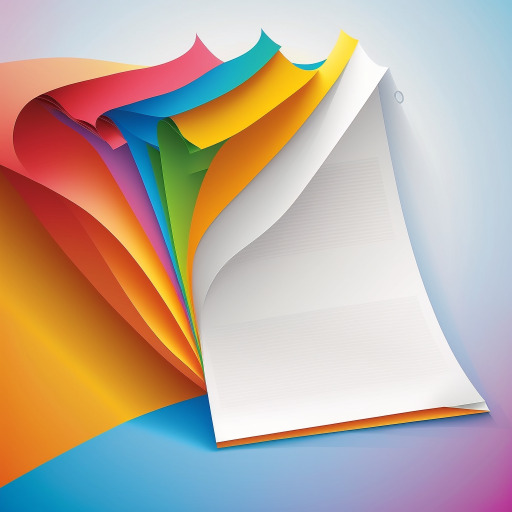PDF or Image to LaTeX Converter-PDF or Image to LaTeX
AI-powered tool for converting mathematical formulas to LaTeX.
Related Tools
Load More
PDF/DocX Creator
A GPT that can create PDFs and DocX documents, worksheets, resumes, etc. for you to directly download. See example outputs on https://www.gpt2office.com/

Image-to-HTML
Building HTML with Wireframe or Image Input

截图转公式(image to formula)
论文公式编辑神器 / 截图上传即可转换 / 24.3.31 更新

Image to PDF Converter
This GPT specializes in assisting users with converting various image file formats, including PNG and JPG, to PDF

PDF, Image or Text Table to Excel
Formats tables for Excel.

LaTeX Picture & Document Transcriber
Convert into usable LaTeX code any pictures of your handwritten notes, documents in any format. Start by uploading what you need to convert.
20.0 / 5 (200 votes)
Introduction to PDF or Image to LaTeX Converter
The PDF or Image to LaTeX Converter is a specialized tool designed to extract mathematical formulas from PDFs or images and convert them into LaTeX code. LaTeX is a typesetting system widely used for mathematical and scientific documents due to its powerful handling of formulas and symbols. This tool focuses exclusively on converting mathematical content, ensuring high accuracy and ease of use for researchers, educators, and students who need to integrate complex formulas into LaTeX documents. For example, a user might upload a PDF containing a research paper with intricate formulas. The converter will identify these formulas, display them for verification, and provide the corresponding LaTeX code for seamless integration into their work.

Main Functions of PDF or Image to LaTeX Converter
Formula Extraction
Example
A user uploads a PDF with multiple pages containing several complex mathematical formulas.
Scenario
The converter scans the PDF, identifies all mathematical formulas, and extracts them while ignoring the surrounding text. Each formula is then displayed for the user to verify before conversion to LaTeX code.
Image Conversion
Example
A user takes a picture of a handwritten mathematical derivation on a whiteboard.
Scenario
The converter processes the image, recognizes the handwritten formulas, and converts them into accurate LaTeX code, allowing the user to include the derivation in a digital document.
Batch Processing
Example
A researcher has multiple scanned documents with various formulas scattered throughout.
Scenario
The converter allows the user to upload several files at once, processes them in a batch, and extracts all the formulas, providing a comprehensive LaTeX code output for each formula, thereby saving time and effort.
Ideal Users of PDF or Image to LaTeX Converter
Researchers and Academics
Researchers and academics frequently deal with complex mathematical content that needs to be accurately represented in their papers and publications. This tool allows them to quickly convert formulas from various sources into LaTeX code, ensuring precision and saving time in preparing their documents.
Students and Educators
Students and educators often need to include mathematical formulas in their assignments, theses, or teaching materials. This converter simplifies the process of transferring formulas from textbooks, notes, or other resources into LaTeX, making it easier to create professional-looking documents.

How to Use PDF or Image to LaTeX Converter
1
Visit aichatonline.org for a free trial without login, also no need for ChatGPT Plus.
2
Upload your PDF or image file containing the mathematical formulas you wish to convert.
3
Select the specific area or page that contains the formulas to ensure accurate conversion.
4
Review the extracted formulas displayed for verification and make any necessary adjustments.
5
Copy the LaTeX code provided for each formula and paste it into your LaTeX editor or document.
Try other advanced and practical GPTs
URL Website Crawler
AI-Powered Data Scraping Made Easy

Assistente de Declaração do Imposto de Renda 2024
AI-powered accuracy for your tax declaration.

CPC Expert - EWADV - ⭐🧑💼💼
AI-Powered Legal Insight Tool
AIdvokat - Umelý Právnik (Slovenské právo)
AI-powered Slovak legal insights

Brainteaser IQ
AI-powered brainteasers for sharp minds.

Engineering Math Tutor
AI-Powered Engineering Math Assistance

Free Bypass AI Detection: Human Ink
Humanize AI content effortlessly with AI.

Venn Diagram
Visualize relationships with AI-powered Venn Diagrams

Prompt like an Art Director 6.1
AI-powered prompt crafting tool.

Marketing Cloud Mastermind
AI-powered Salesforce Marketing Insights

Visio Diagram Explorer
AI-powered Visio diagram explorer.

Python 神经网络助手
AI-powered Python neural network optimization

- Academic Writing
- Research Papers
- Technical Reports
- Math Homework
- Scientific Journals
FAQs about PDF or Image to LaTeX Converter
How accurate is the conversion process?
The accuracy of the conversion depends on the clarity and quality of the input file. High-resolution images and well-formatted PDFs yield the best results.
Can I convert handwritten formulas?
Handwritten formulas can be converted if they are clear and legible. However, typed or printed formulas typically produce more accurate results.
What types of files are supported?
The tool supports various file types, including PDFs, JPEGs, PNGs, and other common image formats.
Do I need any special software to use the converter?
No special software is required. You can use the converter directly from your web browser on aichatonline.org.
Is there a limit to the number of formulas I can convert?
There is no specific limit to the number of formulas you can convert, but the performance may vary based on the file size and complexity.